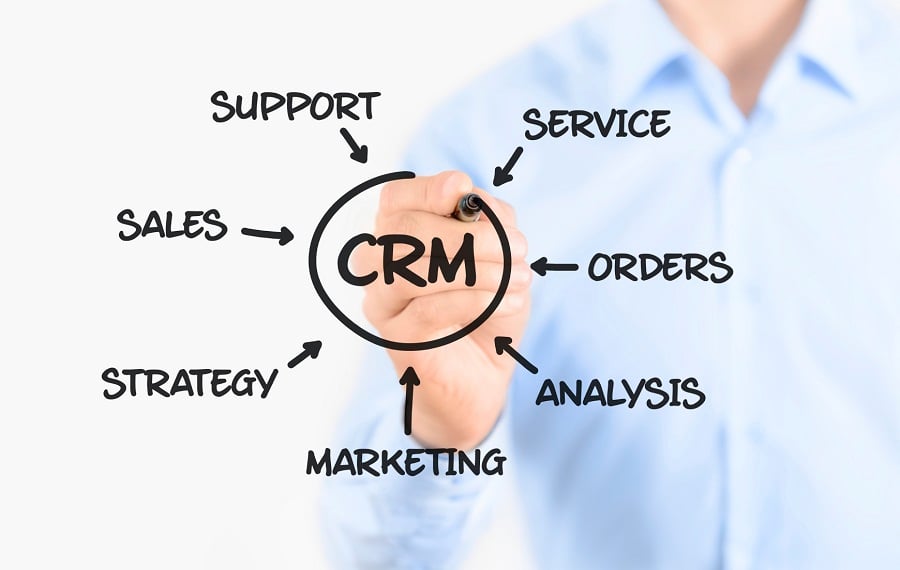"We are what we repeatedly do. Excellence, then, is not an act but a habit."
— Will Durant
Most of us struggle to some degree with establishing a work-life balance that yields all of our desired results. In many cases, addressing these struggles is as simple as building habits into our daily routine to eliminate the brainpower and time required to handle processes, which should be almost automatic. Whether it takes 21 days or eight months to establish a repeated action as a habit, if you're looking to change your life by adjusting your circadian rhythm for better mental health or simply make your business marketing easier by segmenting your clients, the important thing is to begin.
SEGMENTATION
I mentioned client segmentation above because it's one of the most important CRM habits you need to create (and not just for marketing purposes). Your CRM system should offer multiple means of tagging, labeling or categorizing both your clients and prospects, but more importantly, you should avail yourself of every opportunity to take advantage of these tools. They can be a huge help when you're tracking business-related information about your client or more personal-interest items, which are great conversation starters to have quick and easy access to when needed.
Instead of assuming something you learn about your client is irrelevant, consider whether your CRM offers a way to track that data in an existing field and, if so, add it. If it doesn't, create a user-defined field to do so or add the information in a note. Your CRM tool can provide you numerous opportunities for client engagement based on the amount of data your office enters into it.
(More: Technology must reinforce trust, or else)
You should also use CRM to detail your clients' family and membership connections. This will allow you to link and organize clients in an accessible way that's unachievable through notes.
Connecting clients may take many forms, including pairings such as employee-employer relationships, the relationships between your centers of influence or family connections. These latter connections can become more significant over time. Without question, it's in your firm's best interest to establish a relationship with your clients' spouses or significant others as quickly as possible. In the unfortunate case of the client passing away, their significant other will look for a familiar face to manage the money, and if they've never seen yours, you're starting from scratch.
Similarly, you should establish relationships with your clients' children where possible. When children grow up and search for an adviser, if you are top-of-mind in a good way, you're likely to at least be the first adviser interviewed for the job. Keep in mind that over the next 30 years, baby boomers are expected to transfer another $30 trillion to $41 trillion to Generation X and millennials. You should make getting to know your clients' adult children a priority on your to-do list.
By detailing your clients' relationships within your CRM as action items, you are practicing a habit that will be a tremendous time-saver and eliminate future headaches. Instead of scrambling to save a relationship with a spouse or child, you'll have all of the important information at your fingertips.
DOCUMENTATION
Taking detailed, accurate notes in your CRM is essential. Doing so allows you to create a "paper trail" to serve as a historical record, while simultaneously creating a "memory bank" you can return to before a client meeting or call. In terms of CRM priorities, habitual note entry may top the list, particularly when a client's position changes, a major life event occurs or they don't listen to the advice you've provided. Regardless of the type of note you're creating, CRM entry is a must for easy access and firm-wide collaboration.
(More: Ways to improve adviser adoption of new technology)
Calendaring within your CRM provides some of the same benefits as notes in terms of compliance and follow-up, but with the added benefit of allowing you to organize better and plan your time. The more you can visually "chunk" or time block your days and weeks via color coding with your CRM's calendar the better. Focusing on chunks of time rather than an unwieldy to-do list has proven tremendously helpful for many advisory offices in terms of both productivity and accountability.
Both the notes and calendar sections of your CRM will serve as important historical documents and allow you to perform your job better in the present and future.
If excellence is a habit, your CRM offers you any number of ways to achieve excellence and make your business more successful. Implementing your habits is a low-cost way to help you become more efficient and organized, which will positively affect your relationships with clients, peers and employees. As these habits become second nature, you can start incorporating them into additional best practices to further your business goals.
Rick Williamson is lead subject matter expert at Redtail Technology.







